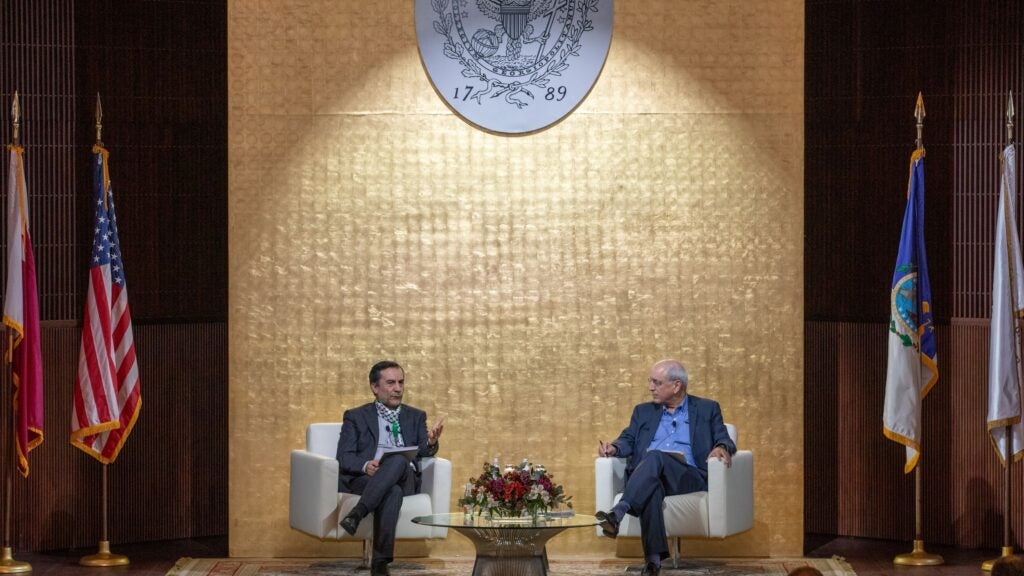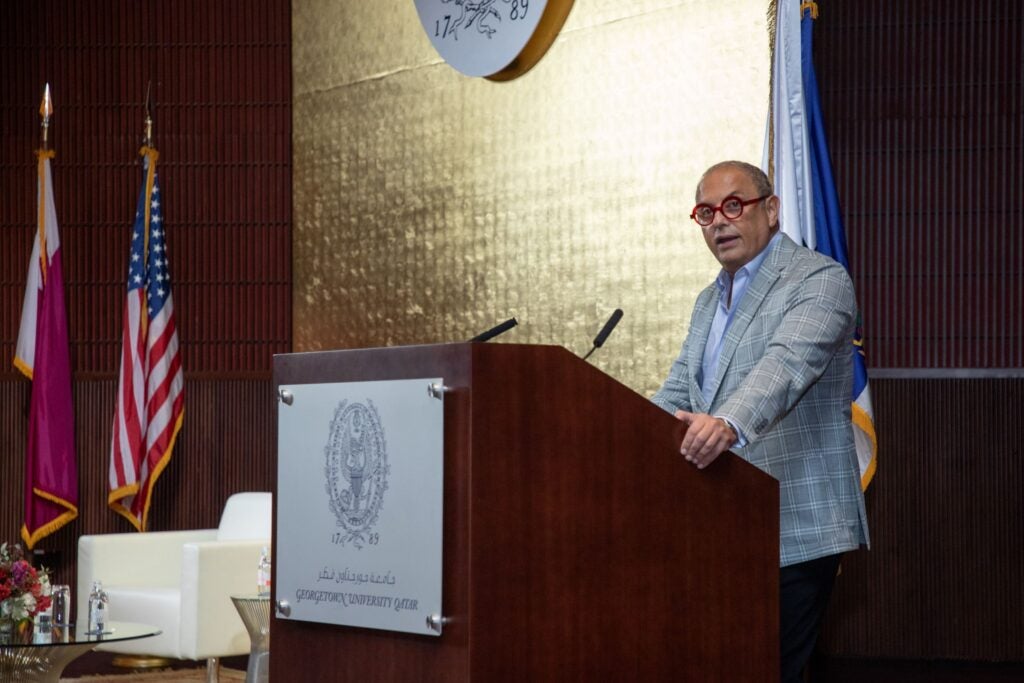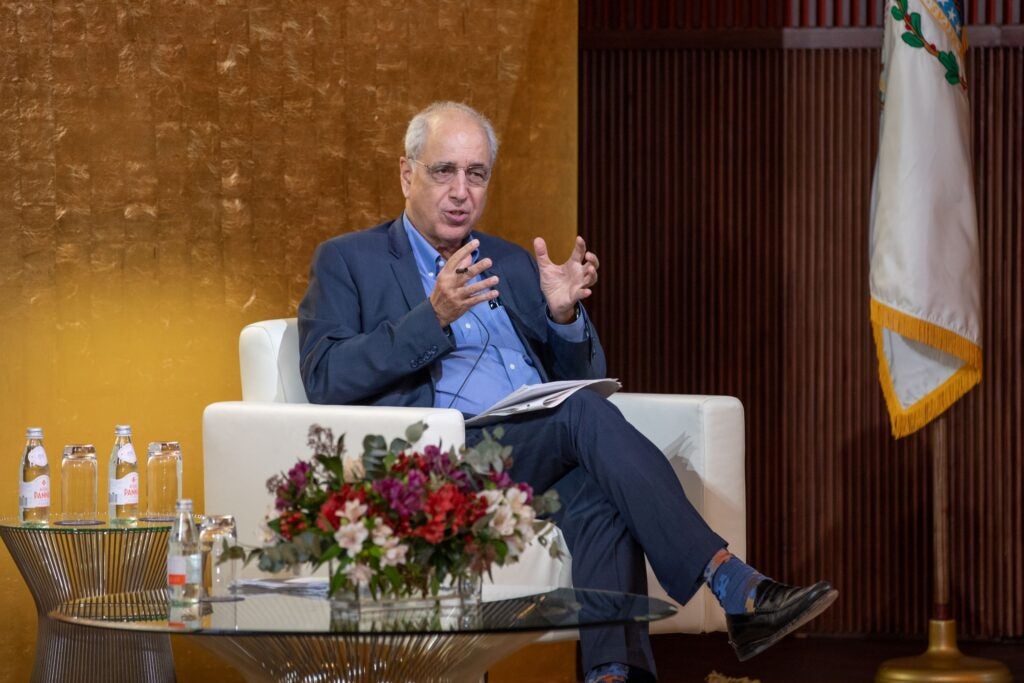UN Special Rapporteur Michael Lynk Explains International Law and the War on Gaza

Georgetown University in Qatar (GU-Q) hosted the latest installment of their Palestine Speaker Series featuring an insightful talk by Michael Lynk, Professor Emeritus of Law at Western University in Canada, and the former UN Human Rights Council Special Rapporteur for the Occupied Palestinian Territories.
Opening remarks were offered by the dean of GU-Q, Dr. Safwan Masri, who said:
“The talk by Canadian academic Professor Michael Lynk on ‘International Law and the New War on Gaza’ was an important event in our Palestine Speaker Series, highlighting legal aspects of the conflict and reflecting his role as UN Special Rapporteur reporting on human rights abuses committed by Israel in Palestine.”

During the talk, moderated by Khaled AL-Hroub, Professor in Residence at Northwestern Qatar, Professor Lynk drew on his extensive experience in Palestinian human rights advocacy to share the challenges he faced in urging the international community to uphold the principles of human rights and international law in the Occupied Territories.
“Nobody should be punished for crimes they didn’t commit.”

Drawing from his 2020 report as Special Rapporteur, Lynk detailed how collective punishment, a violation of international law explicitly forbidden in the 4th Geneva Convention of 1949, has led to widespread human rights abuses in Gaza. “Nobody should be punished for crimes they didn’t commit,” Lynk emphasized, condemning the practices and policies that have resulted in a humanitarian catastrophe.
Professor Lynk noted the numerous reports by human rights organizations that detail the violations in Palestinian territories which call for accountability and adherence to international human rights law. He pointed out that while these reports have gone largely ignored, there has been a shift in public perceptions including the use of “apartheid” and “genocide” to describe the Israeli occupation.
The economy of Gaza has been severely crippled by blockades and war, resulting in the highest unemployment rate globally. His report further documented that 97% of the water in Gaza is unfit for human consumption due to contamination, and the healthcare system is on the brink of collapse. “For all these reasons, Gaza already was a humanitarian crisis. After October 7, it’s a humanitarian catastrophe on its way to becoming a humanitarian calamity,” he concluded.
About the Palestine Speaker Series
Led by Associate Professors Abdullah Al-Arian, Karine Walther, and Visiting Assistant Professor Nadya Sbaiti, the Palestine Speaker Series is part of a larger project at GU-Q which aims to provide a platform for dialogue and analysis of the historical and contemporary issues facing Palestine.